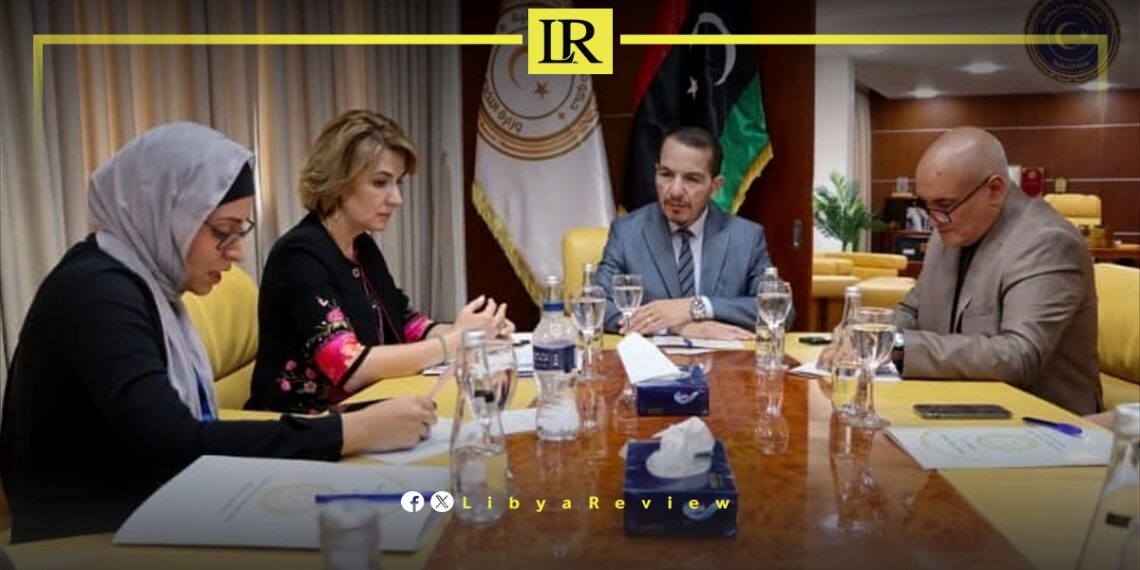On Monday, Libya’s Minister of Planning, Mohamed Al-Zaidani, met with Sophie Kemkhadze, the United Nations Development Programme (UNDP) Resident Representative in Libya, to discuss the upcoming launch of a critical Water Security Strategy.
This strategy is part of a broader effort to address the country’s pressing developmental challenges and to ensure sustainable access to vital resources.
During their meeting, Al-Zaidani and Kemkhadze focused on the collaborative efforts required to advance key projects, with the Water Security Strategy at the forefront. They also emphasized the importance of aligning Libya’s national priorities with international development goals, particularly those related to sustainability, peacebuilding, and resilience.
Kemkhadze highlighted the UNDP’s commitment to working closely with Libyan and international partners to achieve the Sustainable Development Goals (SDGs) in Libya. She pointed to several ongoing initiatives, including the Capacity Building Project and the Peacebuilding and Resilience Program, which are essential for stabilizing local communities across the country.
According to a statement from Libya’s Ministry of Planning, Kemkhadze praised the ministry’s dedication to tracking progress on the SDGs. She also recognized Libya’s recent presentation of its second Voluntary National Review (VNR) for 2024 at the UN High-Level Political Forum on Sustainable Development, organized by the UN Economic and Social Council.
The discussions also covered the financial requirements for various reconstruction initiatives. Kemkhadze reaffirmed the UNDP’s commitment to securing the necessary funding to support these efforts, which are crucial for rebuilding post-conflict areas and ensuring that communities can recover and thrive.
This dialogue comes at a critical time for Libya as the country works to rebuild after years of conflict. The forthcoming Water Security Strategy is expected to play a key role in ensuring sustainable access to water—a vital resource in a nation that has faced significant challenges due to both prolonged conflict and environmental pressures.
Libya’s collaboration with the UNDP underscores the government’s commitment to addressing its most urgent issues through strategic partnerships and international cooperation. The implementation of the Water Security Strategy, along with other development initiatives, is set to have a significant impact on the country’s recovery and long-term stability.
The partnership between Libya and the UNDP reflects broader efforts to align Libya’s national priorities with global development goals, particularly those focused on peace, prosperity, and sustainability. As Libya continues its journey toward recovery, support and collaboration with international entities like the UNDP will be vital in achieving sustainable development outcomes.
As Libya prepares to launch the Water Security Strategy, the ongoing cooperation between the Libyan government and the UNDP remains essential. By fostering these partnerships and securing the necessary resources, Libya is taking important steps toward building a resilient and sustainable future.


